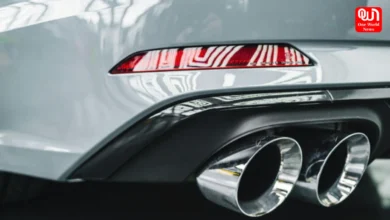Explore the difference between petrol and diesel engine
"Unveil what is the difference between petrol and diesel engines: Petrol engines spark with speed, while diesel engines ignite torque and efficiency. Choose your drive wisely."
Unveiling the Power Paradigm: Decoding the difference between petrol and diesel engine

1: The Heart of the Drive: Combustion Dynamics
Moreover, the petrol engine and diesel engines are two powerful vehicles that drive us forward. Fundamentally they both transform fuel into motion; but the way it’s done, and especially its combustion dynamics, represent completely different means of serving drivers ‘driving needs.
Fundamentally, the difference lies in combustion. The principle of operation for petrol engines is spark ignition. Spark plugs that create an electric arc to cause the air-fuel mixture within the engine cylinder to burn are built into a crankcase (the case in which all remaining parts reside). The force needed to move forward is provided by a controlled explosion which sets off the power cycle. Diesel engines, however, use compression ignition. At the same time, the air within P is compressed to a high temperature. Injected diesel fuel ignites spontaneously. This auto-ignition characteristic is typical of diesel engines, therefore efficiency and performance vary.
2: Fuel Characteristics and Energy Density
The type of fuel is one obvious difference between petrol and diesel engines. Petrol or gasoline is a light, volatile fuel. Since its energy density is lower than diesel, a greater volume of petrol must be consumed per unit measure. This property helps give petrol engines their lightweight and nimble nature, making them ideal for applications requiring speed or agility.
Read more: You Must Take Care Of These 5 Things Before Taking Education Loan
However, diesel fuel has a higher energy density (energy per unit volume). This property means that diesel engines extract more power per unit of fuel than other types. The greater energy density leads to higher torque, the reason diesel is more suitable for use in trucks and industrial machinery.

3: Thermal Efficiency and Fuel Economy
The differences between gasoline and diesel engines’ thermal efficiency and fuel economy are mostly determined by the fuel’s properties and combustion kinetics. Because they use a spark ignition system, gasoline engines may turn over more revolutions per minute (RPM). This makes them ideal for cars like sports cars that need to accelerate quickly and reach higher speeds. But this high RPM use can have a detrimental effect on fuel economy, particularly while cruising at a steady speed.
On the other hand, because they use compression ignition, diesel engines run at lower RPM but provide more torque at lower speeds. Because of this design decision, diesel engines are more fuel-efficient and provide more miles per gallon. The inherent fuel efficiency of diesel engines has contributed to their widespread use in long-haul transportation and commercial applications, where extended periods of constant-speed driving are common.
Read more: How to become a fashion designer after 10th
4: Emissions and Environmental Impact
Environmental considerations have become increasingly critical in the automotive industry, prompting a closer look at the emissions produced by petrol and diesel engines. Petrol engines generally emit lower levels of nitrogen oxides (NOx) and particulate matter compared to their diesel counterparts. The combustion of petrol is cleaner, resulting in fewer pollutants released into the atmosphere.
Diesel engines, by contrast, have historically faced challenges related to higher emissions of NOx and particulate matter. However, advancements in technology, such as the introduction of selective catalytic reduction (SCR) systems and diesel particulate filters (DPF), have significantly reduced the environmental impact of modern diesel engines. Stricter emissions standards and ongoing research continue to drive innovations that mitigate the ecological footprint of both petrol and diesel engines.
We’re now on WhatsApp. Click to join.
Conclusion:
In the realm of internal combustion engines, now you know what is difference between petrol and diesel engine extend beyond mere fuel preferences. The combustion dynamics, fuel characteristics, thermal efficiency, and environmental impact contribute to the unique characteristics of each engine type. While petrol engines excel in speed and agility, diesel engines shine in terms of fuel efficiency and torque output. As the automotive industry evolves, ongoing advancements in technology aim to bridge the gaps between these two powerhouses, offering drivers a diverse array of options that align with their specific needs and preferences.
Like this post?
Register at One World News to never miss out on videos, celeb interviews, and best reads.








